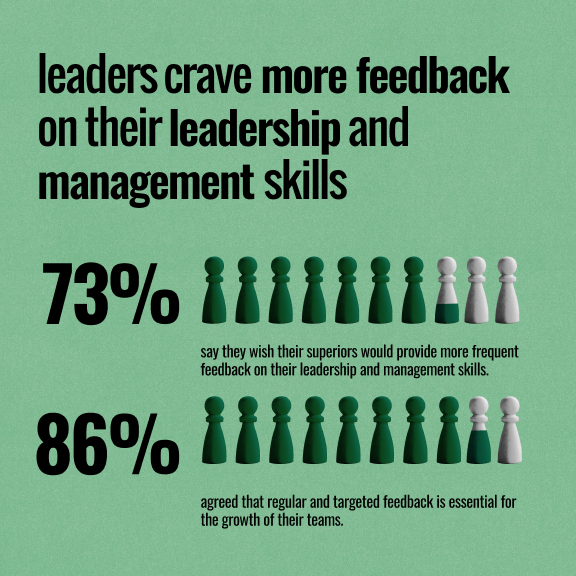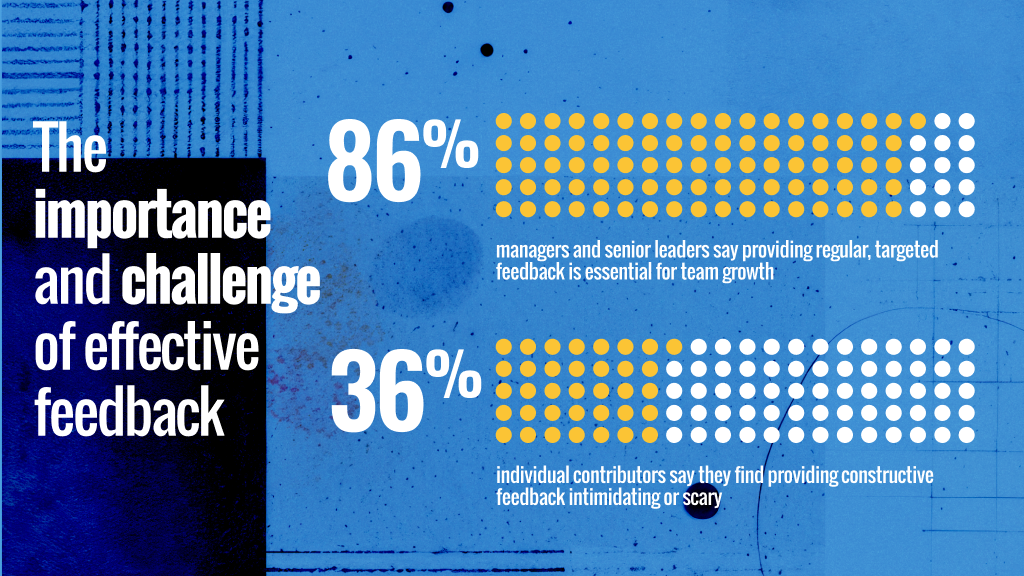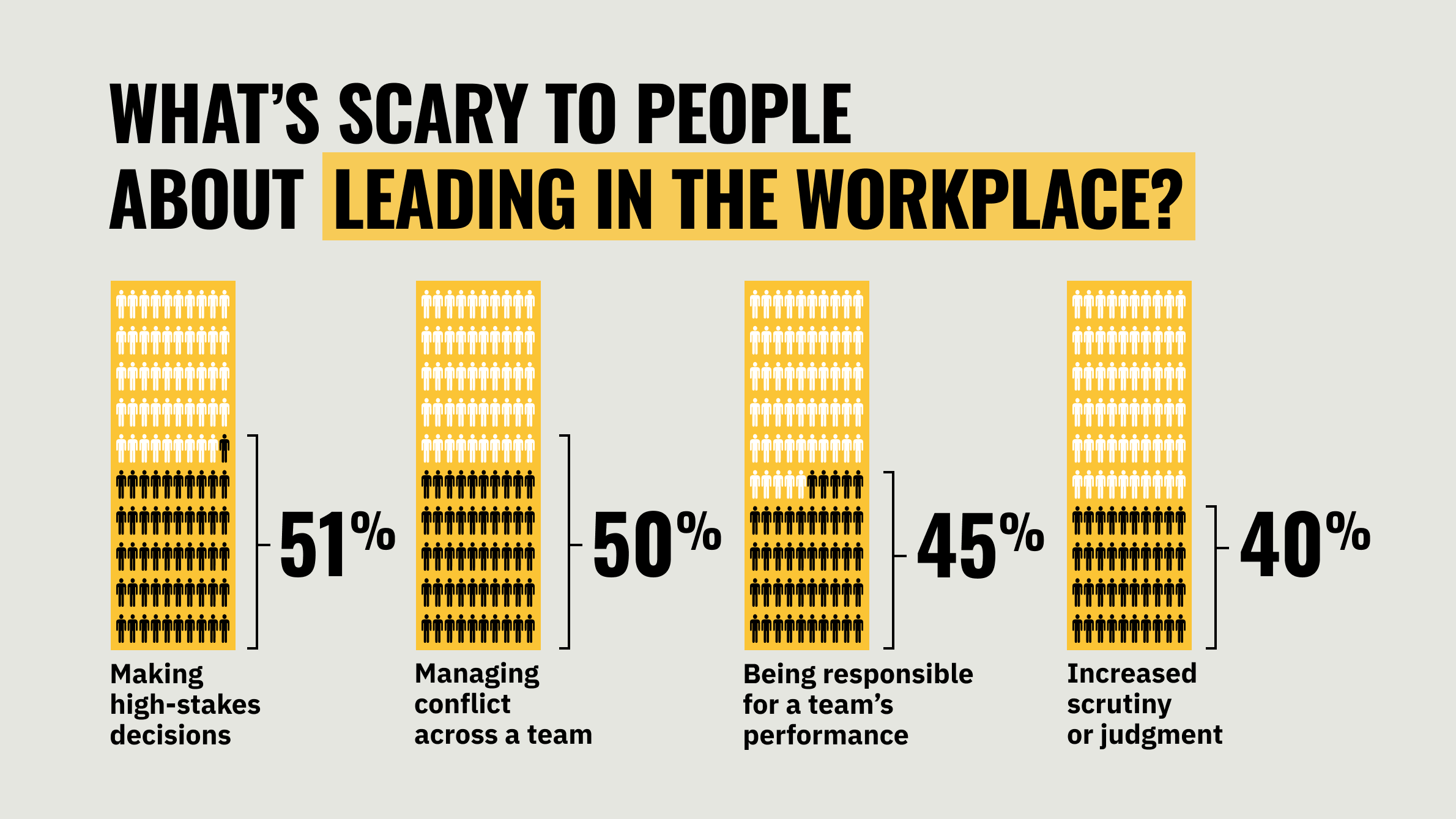Flipping the script on leader feedback: Why leaders need feedback too

Leaders don’t lack resources aimed at helping them deliver more meaningful employee feedback. Yet, candid and comprehensive feedback for leaders, particularly on leadership and management skills, receives far less attention.
According to Gallup research, less than half of U.S. employees (42%) report having the opportunity to formally provide feedback to their manager. Only one in four (24%) have formally rated their manager’s performance. Meanwhile, about a third (36%) of managers say they receive feedback from their peers as part of a formal feedback process.
This imbalance is a detriment to both leaders and their organizations. As the capabilities leaders are expected to master continue to evolve and escalate, it becomes critical for them to understand the impact and effectiveness of their actions and behaviors. This is especially true at a time when organizations are grappling with an inordinate amount of change, complexity, and ambiguity in both the workplace and the marketplace.
What leaders think
In a Big Think+ survey of full-time U.S. employees, 73% of the 288 managers and senior leaders polled say they wish their superiors would provide more frequent feedback on their leadership and management skills.
At the same time, 86% of those leaders agreed that regular and targeted feedback is essential for the growth of their teams. This incongruity — between the significance leaders place on offering feedback to their teams and the seeming lack of significance placed on offering those leaders equivalent guidance — illuminates a feedback gap.
A potential reason for such a feedback gap is the perception that such conversations are naturally uncomfortable and therefore tempting to avoid. Another is a narrow focus on a limited set of skills or metrics that fail to capture the full breadth of a leader’s developmental needs and accomplishments.

L&D has a critical role in addressing this twofold challenge: 1) helping to overcome the perception that feedback is focused on criticism more than praise, and 2) establishing systems that enable and promote robust, candid, and regular feedback to leaders on a comprehensive set of capabilities.
3 L&D strategies for flipping the script on leader feedback
Create a leadership framework
Meaningful feedback is concrete, relevant, and timely. It also relies on a shared understanding of essential skills and behaviors. An essential resource for providing greater clarity and transparency is a leadership competency framework, a structured approach for establishing a long-term leadership strategy, and the development tools and communications to support it.
Why is a leadership framework important? Leaders are typically accustomed to tangible metrics such as revenue growth, productivity, and the like. However, expectations such as team-building, interpersonal skills, and decision quality tend to be less precise and open to interpretation. With a common leadership “language” in place, leaders and employees are more effectively equipped to give and receive compelling feedback.
A vibrant leadership framework can be invaluable, but it can also be difficult and time-intensive to create and sustain. L&D is uniquely equipped to provide the insight, expertise, and commitment to its success.
Establish formal and self-initiated assessment processes
Leaders want feedback on their leadership and management skills that goes well beyond what might be discussed during a year-end review. With a leadership framework in place to guide the process, systems can be established that promote and permit access to more frequent and varied feedback sources.
An accessible method is self-assessment. However, an essential supplement to self-assessment is structured dialogue with a senior leader, mentor, or another trusted advisor who can provide a “reality check,” pose thoughtful questions, and provide insights for future actions.
The most comprehensive approach is 360 feedback, which is designed to solicit input from direct reports, peers, and senior leaders. One of the primary benefits of this method is the breadth and diversity of feedback. However, the purpose and process must be well communicated, and care must be taken to set expectations for the quality and use of the feedback. As with a self-assessment, it is valuable to utilize an internal or external coach to help the recipient understand and realistically engage with the feedback provided.
L&D is essential for developing each component of a leadership assessment process and ensuring its quality, scope, and accessibility.
Prepare leaders for a productive feedback process
An often neglected issue is the openness and ability of leaders to engage with their feedback constructively. They may struggle with how to best process the feedback. In some instances, they may fall victim to self-sabotage or have concerns about psychological safety in feedback interactions. As such, leaders must learn to effectively receive, not just give, feedback.
Training focused on interaction fundamentals such as interpersonal skills and ways to become a more effective communicator can build a foundation. Complementary just-in-time learning resources can feature topics such as emotional intelligence, the art of asking questions, and how to create an individual development plan.
The expertise, insights, and advocacy of L&D are essential to ensure that leaders sustain a positive approach to feedback and are equipped to take advantage of the full range of learning, coaching, and development options.
Final thoughts
Whether a leader is moving into a new role or seeking to continually improve in their current one, feedback from multiple sources is essential to their development. However, research reveals a significant discrepancy between the feedback that leaders desire and their ability to receive it from their employees and senior leaders. This is a significant area of opportunity for many organizations, with the rewards well worth the effort.




